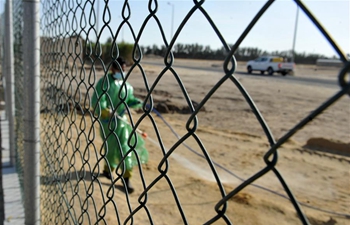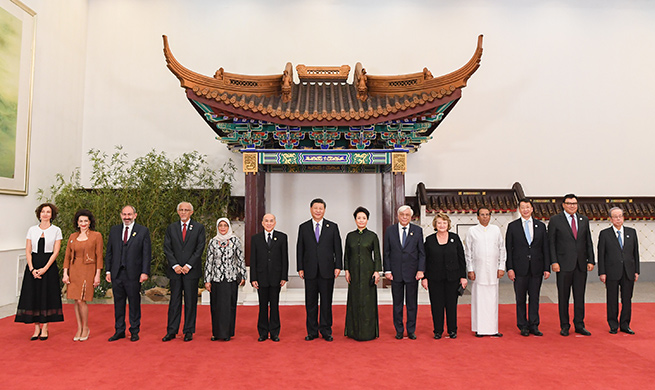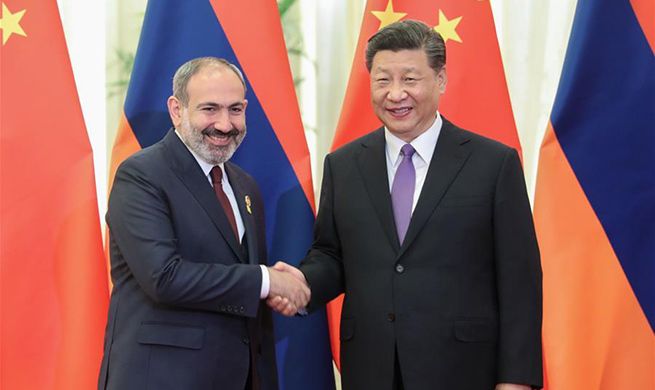SAN FRANCISCO, May 14 (Xinhua) -- As the world faces food safety and other pressing issues, a Silicon Valley company sees opportunities in China to expand its "indoor farming" technology.
"We incorporate hardware, software and plant science into our growing management system repeatedly and consistently to meet customers' demand of building safe, clean and efficient plant," said Robert Chen, president and CEO of AEssenseGrows, during a two-day Silicon Valley Agtech Conference that began on Monday.
The Sunnyvale, California-based company's core technique is aeroponics, which is growing plants on special racks that allow the roots to hang in mid-air where they are misted with a water-nutrient solution.
The company's self-developed "indoor growing systems" are monitored by sensors and managed by software. This technology can help solve the needs for food safety and conservation of resources, said Chen.
It allows large-scale farming in tall buildings rather than spreading in farmland, and it also avoids contamination that could have occurred in the field or in processing facilities, he explained.
"We can harvest lettuce in just 12 days after it's grown," said Chen.
Founded in 2014, the company has a commercial production base in Shanghai. It's now working on another indoor growing system, covering nearly 5,000 square meters for the supply for Shanghai and Hong Kong, according to Chen.
Early this year, the company set up a joint lab with the Shanghai Academy of Agricultural Sciences to develop the aeroponic technique for growing blueberry. So far, the company has developed aeroponic techniques for more than 70 types of plants, such as vegetables, flowers and herbal, according to a recent newsletter of the company.
Chen said the government "does play a very important role" in developing indoor farming, just like in promoting solar energy or electric vehicle.
"The government should have some incentives to help develop indoor agriculture," Chen said. "We are here in Silicon Valley, and we firmly believe the cost of indoor farming will continue to go down because of the advanced lighting and other controls."













